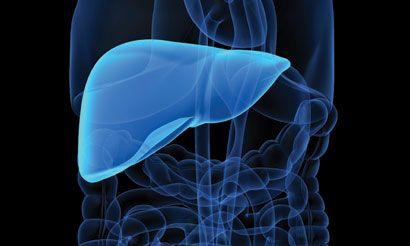Fisogatinib Plus CS1001 Trial Initiated for Treatment of Advanced HCC in China
A phase Ib/2 clinical trial has been initiated to assess the anti-tumor activity of FGFR4 targeted therapy fisogatinib plus the anti–PD-L1 monoclonal antibody CS1001 for the treatment of patients with locally advanced or metastatic hepatocellular carcinoma.

A phase Ib/2 clinical trial has been initiated to assess the anti-tumor activity of FGFR4 targeted therapy fisogatinib (CS3008; BLU-554) plus the antiPD-L1 monoclonal antibody CS1001 for the treatment of patients with locally advanced or metastatic hepatocellular carcinoma (HCC), according to the biopharmaceutical company CStone Pharmaceuticals.1
This multi-center, open-label study will be conducted across multiple sites in China, where almost half of all new cases of HCC in 2018 occurred. The treatment combination is being evaluated for its synergistic effect on the tumor.
“HCC is a particularly aggressive disease, and China is currently faced with enormous challenges due to limited effective treatment options and poor prognosis in [patients with HCC] at advanced stages,” Arche Tse, MD, PhD, chief translational medicine officer at CStone, said in a press release. “CStone is committed to addressing unmet clinical needs through identifying potentially transformative combination regimens against complex cancers like HCC.”
The clinical trial will be divided into 2 parts, consisting of a dose-escalation phase and a dose-expansion phase. Two doses of fisogatinib plus a fixed dose of CS1001 will be evaluated in the dose-escalation phase to determine a recommended phase II dose that can be also used in the dose-expansion phase.
The combination will be evaluated for safety, tolerability, pharmacokinetics, and anti-tumor activity in the study. Additionally, the expression of FGF19, the ligand that activates FGFR4, will be determined at a central laboratory. Primary end points include incidence rate of dose-limiting toxicity (DLT) for the phase Ib and overall response rate (ORR) by RECISTS v1.1 for the phase II. Approximately 50 patients with locally advanced or metastatic HCC are expected to be enrolled.
To be eligible, patients must have unresectable locally advanced or metastatic HCC and at least 1 measurable lesion as evaluable by RECIST v1.1. They must also have an ECOG performance status of 0 or 1, A-level Child-Pugh score, and an expected survival of at least 3 months. Should patients have a prior history of hepatic encephalopathy, history of liver surgery and/or local treatment for HCC within 4 weeks of first study dose, or active/documented gastrointestinal bleeding within 6 months, they were excluded from the study.
“We are pleased that through our dedicated efforts, we have successfully achieved the dosing of the first patient in the phase Ib/2 trial of fisogatinib in combination with CS1001, which hopefully will bring meaningful clinical benefits to patients with advanced HCC,” Tse said. “CS1001 is one of CStone’s backbone immuno-oncology assets and multiple combination therapy trials with CS1001 have been carried out.”
CS1001 is being developed by CStone. The monoclonal antibody, which is directed against PD-L1, demonstrated good tolerability in a phase I dose-escalation study in China, in which the agent also led to sustained clinical benefit in multiple tumor types during phase Ia and Ib stages of the trial. The drug is also under evaluation in multiple ongoing clinical trials, many of which are happening in China. One phase I bridging study is evaluating CS1001 in the United States.
FGFR4 has been determined by preclinical data to be an oncogenic driver for a subset of patients with advanced HCC. The oral, potent, irreversible targeted therapy being developed by Blueprint Medicines was designed to selectively inhibit FGFR4 and spare paralogs FGFR1, FGFR2, and FGFR3. The agent as monotherapy also demonstrated clinical activity in an ongoing phase I trial, published inCancer Discoveryin October 2019.2
In an open-label, multi-center, first-in-human phase I trial, oral fisogatinib was evaluated in patients with HCC. The primary objectives were to determine the recommended phase II dose and the maximum tolerated dose. Investigators also evaluated the safety and tolerability of the agent. Twenty-five patients received fisogatinib once daily in doses ranging from 140 mg to 900 mg.
No DLTs occurred after 1 cycle of fisogatinib doses of 140 mg to 600 mg. However, in patients that received the 900 mg dose, 2 DLTs occurred, including 1 case of grade 3 abdominal pain and 1 of grade 3 fatigue lasting for more than 1 week. A fisogatinib dose of 600 mg was selected for the dose-expansion phase of the trial.
The ORR was 17% with a median duration of response of 5.3 months in patients who were FGF19-positive (95% CI, 3.7not reached). In patients who were FGF19-negative, the ORR was 0%. Overall, the agent was well tolerated, with the most common adverse events included grade 1/2 gastrointestinal events. These were primarily diarrhea, nausea, and vomiting, and all were manageable.
“We look forward to advancing our fisogatinib clinical program by conducting a phase Ib/II trial in China, where the incidence of HCC is disproportionately high. Because fisogatinib has exquisite selectivity against an oncogenic driver, we believe this investigational treatment is well-positioned for combination therapy. Fisogatinib and CStone's PD-L1 inhibitor CS1001 have complementary mechanisms of action that may offer durable clinical activity in patients with HCC," Andy Boral, MD, PhD, chief medical officer at Blueprint Medicines, said in a statement.
References:
- CStone Pharmaceuticals and Blueprint Medicines initiate phase 1b/2 clinical trial of Fisogatinib in combination with CS1001 for patients with hepatocellular carcinoma [news release]. Suzhou, China: PR Newswire; January 6, 2020.https://prn.to/35AjiBH. Accessed January 7, 2020.
- Kim RD, Sarker D, Meyer T, et al. First-in-Human Phase I study of Fisogatinib (BLU-554) validates bberrant fibroblast growth factor 19 signaling as a driver event in hepatocellular carcinoma.Cancer Discovery. 2019. doi: 10.1158/2159-8290.CD-19-0555.
Gholam Contrasts Lenvatinib With Other Options in Child-Pugh B HCC
December 21st 2024During a Case-Based Roundtable® event, Pierre Gholam, MD, discussed how post hoc and real-world analyses build upon the limited available trial data for treating patients with unresectable hepatocellular carcinoma with Child-Pugh B status.
Read More




